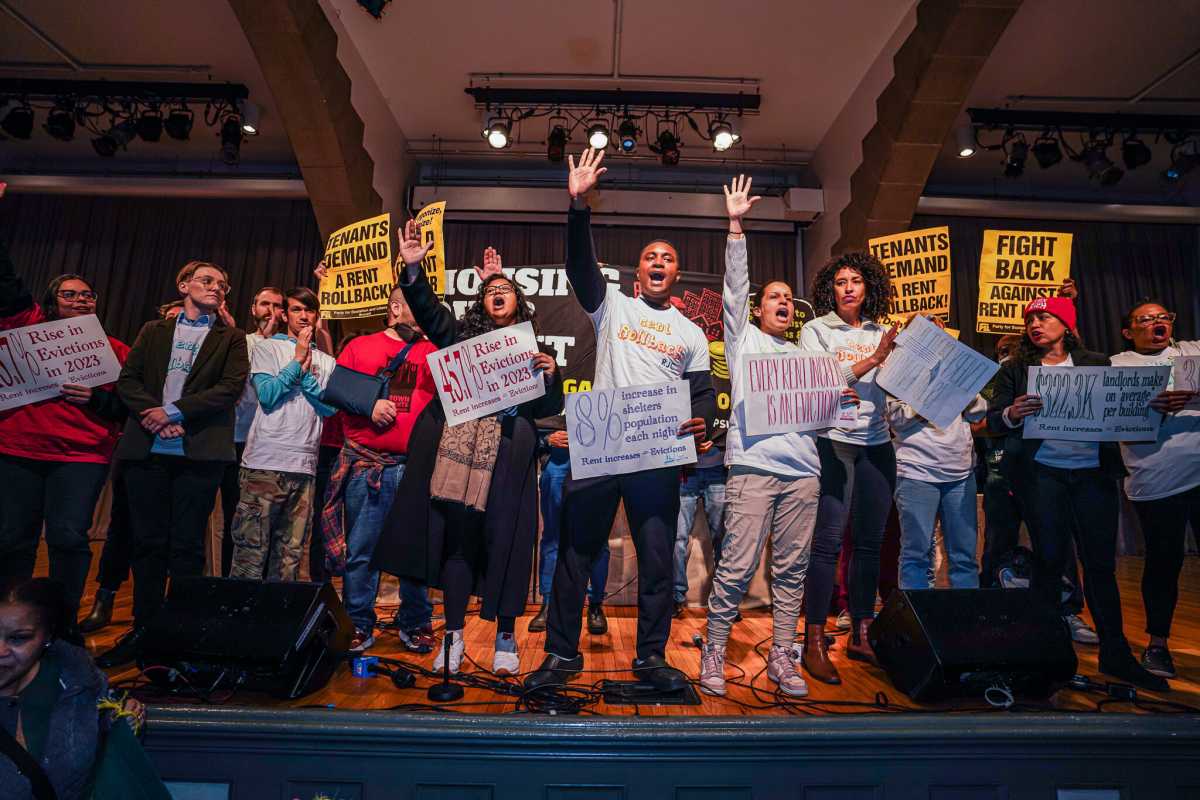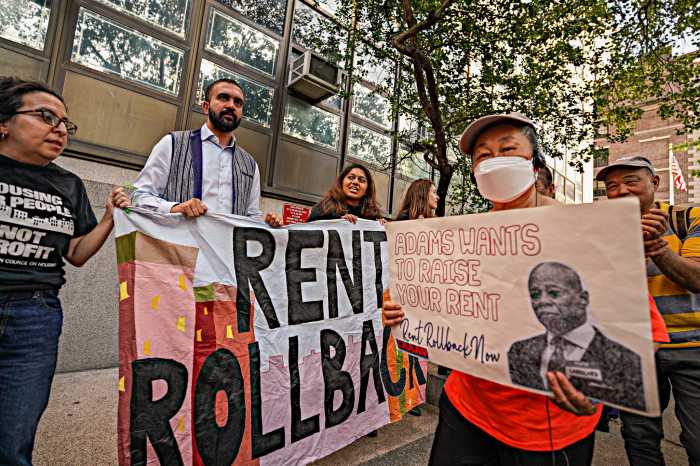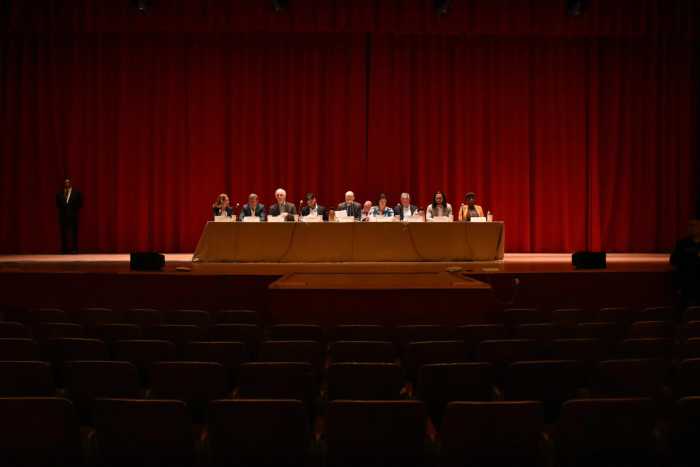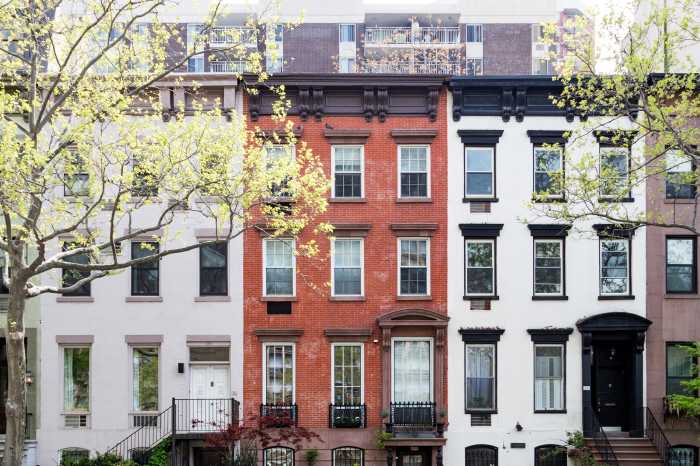The Rent Guidelines Board approved a range of increases for the city’s 1 million stabilized tenants that could see leases spike up to 7%, against the backdrop of a raucous meeting where protesters and elected officials stormed the stage and relentlessly booed the proceedings.
By a 5-4 vote, the board approved a preliminary range of increases of 2-5% for one-year leases and 4-7% for two-year leases. The Board will vote on the final percentage increase on June 21, but increases historically fall within the preliminary range.
The affirmative votes included all the “public” members of the board plus the chair. The members repping landlords and tenants all voted in the negative; landlord reps had sought increases as high as 14%, while the tenant members were hoping for a rent rollback of -1%.
Last year, the board approved its highest increases for rent-stabilized tenants since the Bloomberg administration. If the final increase errs towards the higher end, this year’s hike would be even higher. But Mayor Eric Adams said Tuesday that the upper range is too high, even as he expressed sympathy for property owners.
“I want to be clear that a 7% rent increase is clearly beyond what renters can afford and what I feel is appropriate this year,” Adams said. “I recognize that property owners face growing challenges maintaining their buildings and accessing financing to make repairs; at the same time, we simply cannot put tenants in a position where they can’t afford to make rent.”
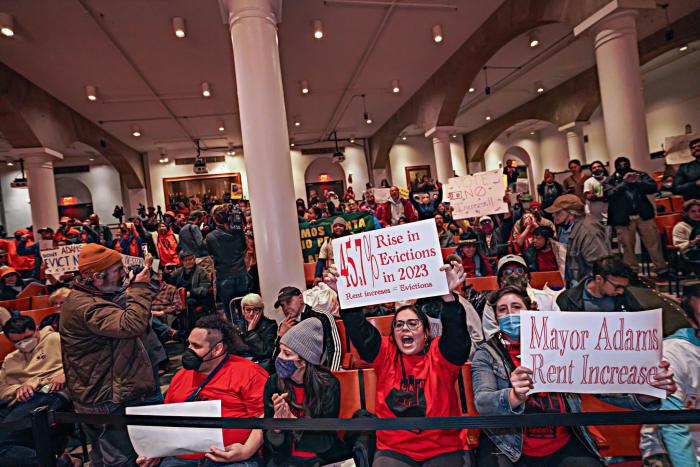
The mayor appoints all of the RGB’s members, and only two of the nine current members are holdovers from Adams’ successor, Bill de Blasio. De Blasio successfully pushed the board to freeze rents or keep increases relatively low throughout his tenure, but Adams has not followed the same track, arguing the board has to account for the needs of small landlords in addition to tenants.
The vote was lambasted by tenant advocates and by progressive elected officials, who met the vote at the Cooper Union with boos and chants of “rent rollback” and “shame on you.” Eventually, a group of them stormed the stage, remaining there through the vote and drowning out the board members throughout the evening. From the stage, elected officials read stories about constituents struggling to eat or afford basic necessities due to their high rents.
Councilmember Sandy Nurse spoke on behalf of “Lauren from East Flatbush,” who spends more than 50% of her income on rent and often has to choose between paying her rent and having enough food to eat.
“If their rent were to go up even one more dollar, if it goes up even one more dollar, it would affect them by possibly making them homeless, as they’re already backdated in their rent owed,” said Nurse.
The vote takes place amid the backdrop of a housing crisis spiraling out of control in the Big Apple. In Manhattan, the average rent for an apartment stood at over $5,000 in March, the highest levels ever recorded and a 10% increase over last year, according to market research by real estate firm Douglas Elliman. Rents average $3,844 in Brooklyn and $3,471 in northwest Queens, according to Elliman. Both boroughs saw even larger increases than Manhattan.
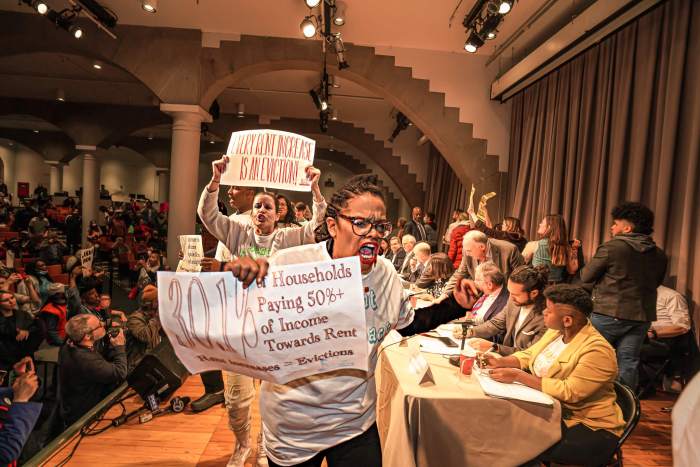
More than a third of the city’s renters are paying at least half of their income on rent, according to the RGB’s 2023 Income and Affordability Study released last month. Nearly 40% of rent-stabilized tenants pay over half their income to their landlord. In April, the United Way’s “True Cost of Living” study found more than half of New Yorkers are struggling to afford their basic needs.
The city’s homeless shelters are regularly seeing more than 70,000 people walk in each night, the highest levels ever recorded, with many more sleeping on the streets, in the subways, or couch surfing.
Meanwhile, what seemed like a promising state legislative session for addressing the affordability crisis collapsed, with the budget passing sans any substantive housing policy. Both Governor Kathy Hochul’s Housing Compact, which would require localities to grow their housing stock, and good cause eviction, which would limit rent increases and evictions statewide, failed to make the cut.
The board’s landlord members and their allies have argued that they need larger increases in order to maintain their affordable housing stock against huge increases in the cost of utilities, labor, insurance, and other inputs. Jay Martin, executive director of the Community Housing Improvement Program, a trade group for rent-stabilized landlords, said the range of increases approved “does not come close” to covering their costs.
“Even the highest end of these ranges will not put a penny in rent-stabilized building owners’ pockets,” Martin said in a statement. “Every single cent of the proposed rent adjustment will go to property tax payments, maintenance, skyrocketing insurance, and mandatory upgrades to buildings.”
Expenses for buildings with stabilized units have increased by 8.1% in the past year, according to the board’s “Price Index of Operating Costs.” In particular, fuel has increased by 19.9% and insurance by 12.9%.
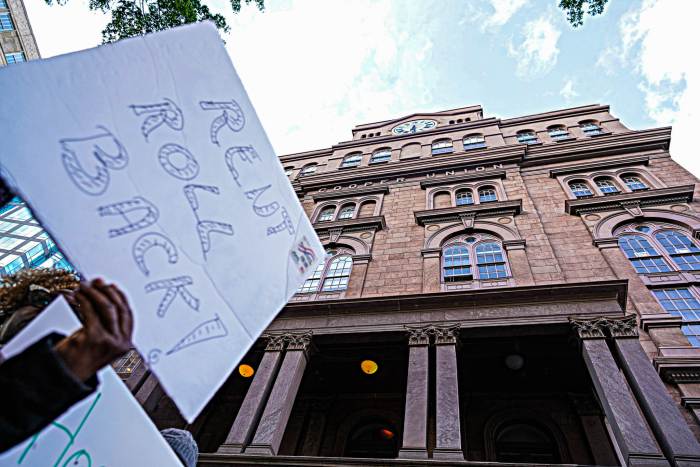
The tenant members and advocates, on the other hand, contend that the board’s role is not to ensure landlords have a return on investment, but to maintain affordable housing and keep communities intact. They say the board has consistently failed to meet that mantle.
“Over the decades, RGB chairpersons, different mayoral administrations, and board members themselves all make the offensive mistake of comparing the struggle of working-class Black and brown people against the performance of an individual person or corporate entity’s investment portfolio,” said Adán Soltren, a tenant member and a housing attorney with the Legal Aid Society. “One circumstance is about livelihood, about saving families and communities, and avoiding houselessness, and the other is a business decision about financial gain and loss. They are not the same, and they will never be the same.”
That was echoed by the other tenant member, Genesis Aquino, executive director of organizing group Tenants & Neighbors and the board’s only rent-stabilized tenant. She spends just under 30% of her paycheck on her $1,400 rent. She worries especially for her mother, who barely clears minimum wage as a home attendant and spends over 60% of her income on rent.
“Our job tonight is to create balance and restore justice against the real estate industry that for so long has regulated itself. We as a board have fallen short of our job of balancing all of those inequities,” said Aquino. “Our board is not an eviction machine, our job is to regulate the brutal capitalist market that commodifies housing and crushes the working-class tenants.”
Elected officials also panned the board’s vote. Public Advocate Jumaane Williams called the vote a “devastating attack on New York’s tenants,” while City Council Speaker Adrienne Adams said the vote “continu[es] to erode affordability” and “undermine[s] our goals of keeping New Yorkers safely in their homes.”
“For New Yorkers to succeed,” Speaker Adams said in a statement with Bronx Councilmember Pierina Sanchez, “we must ensure our city keeps New Yorkers in their homes and provides sufficient access to affordable and sustainable housing.”



